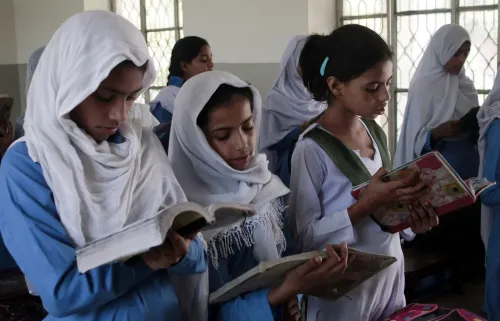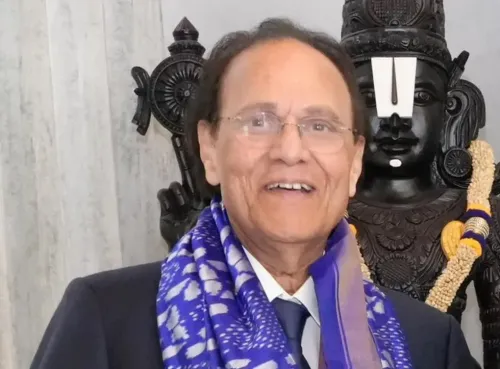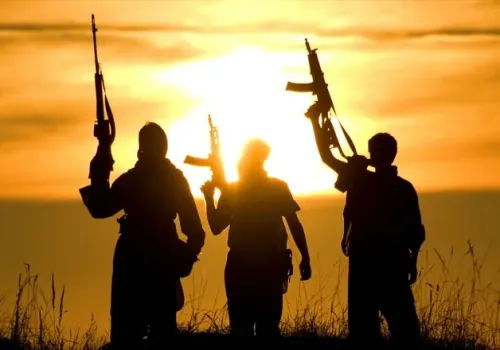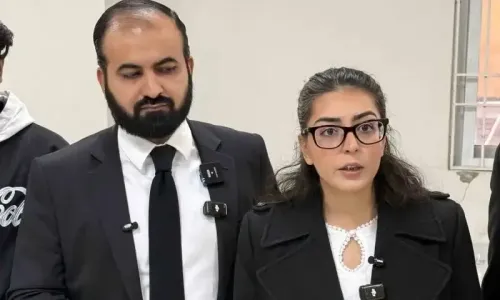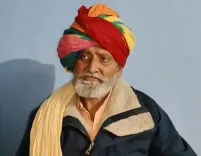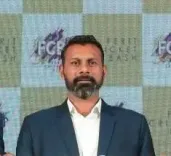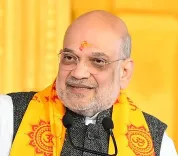Iraq Calls Lebanese Ambassador Following President's Comments on PMF
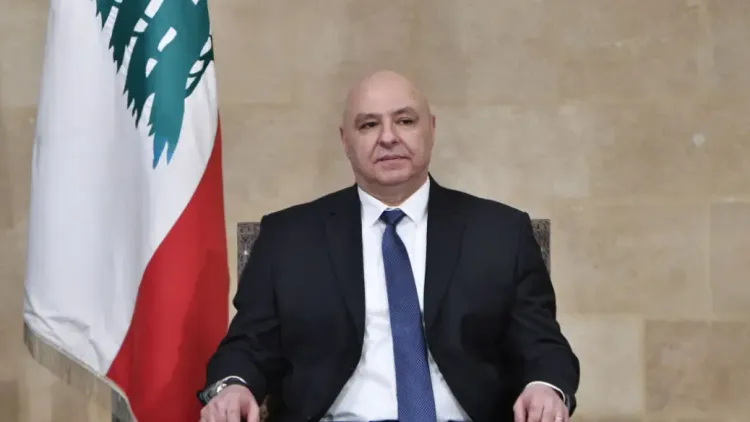
Synopsis
Key Takeaways
- The Lebanese ambassador was summoned over comments made by President Aoun.
- The PMF is a crucial part of Iraq's military structure.
- Lebanon's President rejected the idea of imitating the PMF.
- Relations between Iraq and Lebanon have historical significance.
- Both nations are encouraged to maintain respectful dialogue.
Baghdad, April 17 (NationPress) Iraq's Foreign Ministry has summoned the Lebanese ambassador to Iraq, Ali al-Habhab, to express discontent over remarks made by Lebanese President Joseph Aoun concerning the Iraqi paramilitary Popular Mobilisation Forces (PMF).
In a statement released on Wednesday, the Ministry voiced its dissatisfaction with Aoun's comments during a recent media interview, where he rejected the notion of mirroring the PMF model for integrating Hezbollah into the Lebanese army, as reported by the Xinhua news agency.
Mohammed Bahr AlUloom, the Iraqi Deputy Foreign Minister for Bilateral Relations, emphasized that the PMF is a crucial component of Iraq's military security framework and is recognized as a governmental and legal institution, integral to the Iraqi state system, according to the Ministry's statement.
He suggested that it would have been preferable not to involve Iraq in Lebanon's internal issues or to use an official Iraqi institution as a reference in this context.
He also expressed hope that the Lebanese President would amend his statement in a manner that fortifies the fraternal ties between the two nations and acknowledges the sovereignty of each country.
In a response, al-Habhab reiterated the strong ties between Lebanon and Iraq, assuring that he would communicate Iraq's concerns to Aoun and work towards rectifying the situation to foster the advancement of bilateral relations, as stated.
According to the Iraqi statement, Ambassador Habhab reaffirmed Lebanon's respect for its "brotherly" relationship with Iraq and indicated he would pass Baghdad's concerns to President Aoun.
He also emphasized Lebanon's dependency on Iraq's pivotal role in reconstruction and regional collaboration.
In recent years, Iraq has provided Lebanon with fuel to mitigate its electricity shortages, and during Israel's extensive conflict with Lebanon, Iraq accommodated tens of thousands of displaced Lebanese.
This latest diplomatic disagreement arose following Aoun's interview with Al-Araby Al-Jadeed, wherein he stated that Lebanon would not attempt to replicate the PMF model to ensure that all arms are under state control.
His remarks were interpreted in Baghdad as equating the PMF with militias rather than acknowledging it as a formal segment of Iraq's security establishment.
The PMF, an Iran-backed Shia armed force established in 2014 to combat Islamic State militants, was later integrated into Iraq's official security framework under a 2016 law that recognized them as a state-sanctioned military entity operating under the Prime Minister's command.
In light of the controversy, Iraqi Prime Minister Mohammed Shia' Al-Sudani defended the PMF during a public forum in Sulaymaniyah, describing it as "a vital institution and an integral part of Iraq's security system."


